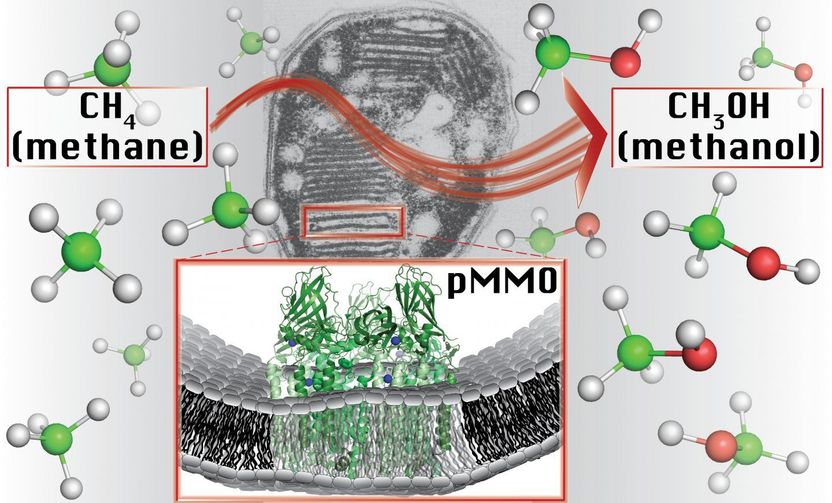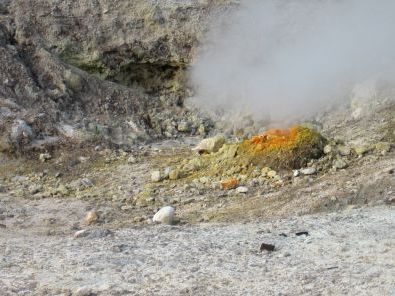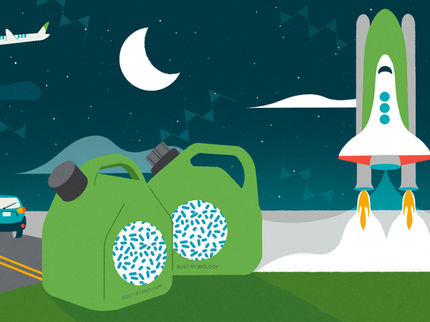Methane-consuming bacteria could be the future of fuel
Discovery illuminates how bacteria turn methane gas into liquid methanol
Advertisement
Known for their ability to remove methane from the environment and convert it into a usable fuel, methanotrophic bacteria have long fascinated researchers. But how, exactly, these bacteria naturally perform such a complex reaction has been a mystery.

The primary metabolic enzyme in methanotrophic bacteria, particulate methane monooxygenase (pMMO), catalyzes the methane-to-methanol conversion at a site with one copper ion.
Northwestern University
Now an interdisciplinary team at Northwestern University has found that the enzyme responsible for the methane-methanol conversion catalyzes this reaction at a site that contains just one copper ion.
This finding could lead to newly designed, human-made catalysts that can convert methane -- a highly potent greenhouse gas -- to readily usable methanol with the same effortless mechanism.
"The identity and structure of the metal ions responsible for catalysis have remained elusive for decades," said Northwestern's Amy C. Rosenzweig, co-senior author of the study. "Our study provides a major leap forward in understanding how bacteria methane-to-methanol conversion."
"By identifying the type of copper center involved, we have laid the foundation for determining how nature carries out one of its most challenging reactions," said Brian M. Hoffman, co-senior author.
By oxidizing methane and converting it to methanol, methanotrophic bacteria (or "methanotrophs") can pack a one-two punch. Not only are they removing a harmful greenhouse gas from the environment, they are also generating a readily usable, sustainable fuel for automobiles, electricity and more.
Current industrial processes to catalyze a methane-to-methanol reaction require tremendous pressure and extreme temperatures, reaching higher than 1,300 degrees Celsius. Methanotrophs, however, perform the reaction at room temperature and "for free."
"While copper sites are known to catalyze methane-to-methanol conversion in human-made materials, methane-to-methanol catalysis at a monocopper site under ambient conditions is unprecedented," said Matthew O. Ross, a graduate student co-advised by Rosenzweig and Hoffman and the paper's first author. "If we can develop a complete understanding of how they perform this conversion at such mild conditions, we can optimize our own catalysts."

























































